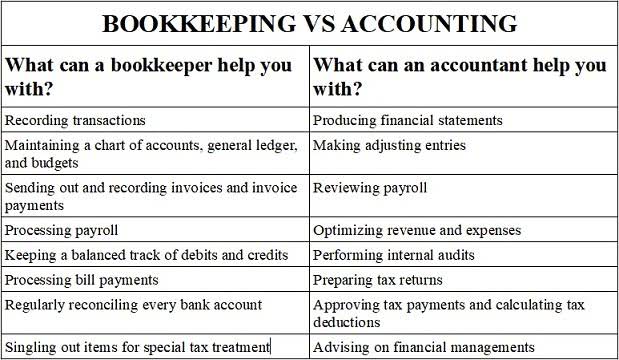
Attorneys might be tempted to ‘borrow’ money from the trust account during cash flow problems, thinking it harmless since the money will be theirs eventually. However, this is a direct violation of trust accounting rules and can jeopardize your professional integrity. In its most essential form, trust accounting is defined as bookkeeping for trust accounts in accordance with legal and ethical requirements.
Gen AI: Your Legal Research Assistant, Not Your Replacement

Look for software that offers detailed record-keeping, automated reconciliation features, and robust reporting capabilities. It’s also beneficial if the software integrates with other tools your firm uses, like QuickBooks for financial management. Platforms like RunSensible are designed specifically for legal professionals, offering tailored solutions that meet these criteria. Trust accounting for lawyers is more than a regulatory requirement; it’s a foundational element of the legal profession’s commitment to integrity, client service, and ethical practice. As we’ve explored in this comprehensive guide, managing client funds responsibly is crucial for maintaining the trust and confidence that clients place in their legal representatives. Trust accounting is a critical component of legal practice that requires diligence, accuracy, and adherence to ethical standards.
- A well-trained staff ensures correct documentation while avoiding mistakes which creates better accuracy when managing client funds.
- Law firms must follow their local Bar’s rules for handling client trust funds.
- Our custom-tailored services exist to help your firm regulate both its financial performance and regulatory requirements.
- Education and continuous vigilance, combined with the adoption of specialized tools like trust accounting software, are key to maintaining the integrity of client funds and the reputation of the legal profession.
FEATURES

To effectively tackle these challenges, law firms should establish robust policies and procedures for managing client accounts. In the intricate world of legal practice, trust trust accounting for lawyers accounting serves as a cornerstone of ethical responsibility and client confidence. Legal professionals navigating the complexities of managing client funds must recognize the paramount importance of maintaining transparency and compliance.
- The accounting solutions you need for your law firm can be found through working with Aquifer CFO, which provides customized guidance.
- Statistics reveal that a considerable portion of lawyers encounter challenges in adhering to financial management regulations, with examinations by state bar or governmental agencies frequently uncovering compliance issues.
- PracticePanther is a leading cloud-based law practice management software solution that serves tens of thousands of legal professionals in 170 countries.
- Attorneys must maintain a separate ledger for each client with money in the trust accounts.
- Each jurisdiction has its own set of rules and regulations, so you need to be diligent in your processes.
- Lawyers spend a good deal of time learning and understanding definitions.
Funds that should never be placed in a client trust account

There are several other rules banks and firms must follow when managing IOLTA accounts. For example, banks should not charge bad check charges, maintenance fees, or other incidentals of the client’s trust money. Trust accounting rules victoria isn’t just about good practice; it’s a foundational element of regulatory compliance within the legal industry.
Final thoughts on legal trust accounting in QuickBooks
All interest earned by trust accounts is paid to the appropriate IOLTA program. This non-profit program funds legal services for the indigent and other programs that support other legal causes. The American Bar Association sets specific rules outlining the dos and don’ts of trust accounts. All interest earned by trust accounts is paid to the appropriate IOLTA program.
You may have one trust account with your bank but you should have multiple sub-accounts for each client. Your accounting software should enable you to create the appropriate sub-accounts for each client. The American Bar Association sets specific rules outlining the dos and don’ts of trust accounts. A trust account is simply a special bank account an attorney must maintain. Attorneys receive money from their clients, which are then held in this special bank account. Streamlining your trust accounting system is achievable once you understand the rules and have the right tools to optimize your processes.
In the dynamic and detail-oriented world of legal practice, trust accounting for lawyers stands as a cornerstone of ethical and professional responsibility. This comprehensive guide aims to delve into the intricacies of trust accounting, highlighting its critical role in maintaining the integrity and trustworthiness of law firms towards their clients. With trust accounting software evolving as an indispensable tool, law firms are better equipped to uphold their fiduciary duties while enhancing operational efficiency. Let’s embark on this journey to ensure your practice is not only compliant but also exemplifies the highest standards of client service and ethical practice. Trust accounting refers to the bookkeeping process of managing funds that a lawyer holds on behalf of clients.
Secure and Limit Access to Trust Accounts
A CFO, or Chief Financial Officer, is a senior executive responsible for managing the financial actions of a company. This includes financial planning, risk management, record-keeping, and financial reporting. Essentially, a CFO plays a crucial role in guiding the financial strategy of a business.
A strategic approach to trust account management both protects client assets and helps you create a positive image for your firm. Lawyers need to focus on respecting three key principles when they manage client funds at trust accounts. Start bulletproof trust accounting today through systems and coursework designed to Retail Accounting maintain legal compliance. To discover our reliable, professional financial solutions, visit AquiferCFO. Trust accounting involves the management of funds held on behalf of clients, typically in a separate account from the law firm’s operating funds.